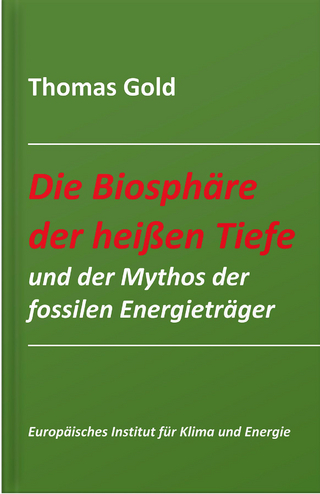
Structure and Intrinsic Disorder in Enzymology
Academic Press Inc (Verlag)
978-0-323-99533-7 (ISBN)
Chapters also review methods for study, as well as evolving technology to support new research across academic, industrial and pharmaceutical labs.
Dr. Munishwar Nath Gupta earned his PhD from Indian Institute of Science, Bengaluru, and completed post-doctoral positions at Massachusetts Institute of Technology (USA), University of Minnesota (USA), Lund University (Sweden), and University of Technology of Compiegne (France). He has taught chemistry, biochemistry, and biotechnology at the Indian Institute of Technology, Delhi, between 1975-2016. He was awarded the National Science Talent fellowship (India) and Fellowships of National Academy of Sciences and Indian National Science Academy. He has edited three books on thermostability of enzymes, non-aqueous enzymology and affinity-based separation methods. He was an Associate Editor of Biocatalysis and Biotransformation (Taylor and Francis) and the founding and former editor-in-chief of Sustainable Chemical Processes (Springer). He’s served on editorial boards of several national and international journals and acted as a consultant to Novozyme (Denmark), Dabur (India), and other international companies. Prof. Vladimir N. Uversky, PhD, DSc, FRSB, FRSC, FAIMBE, Professor at the Department of Molecular Medicine, Morsani College of Medicine, University of South Florida (USF), is a pioneer in the field of protein intrinsic disorder. He has made a number of groundbreaking contributions in the field of protein folding, misfolding, and intrinsic disorder. He obtained his academic degrees from Moscow Institute of Physics and Technology (Ph.D., in 1991) and from the Institute of Experimental and Theoretical Biophysics, Russian Academy of Sciences (D.Sc., in 1998). He spent his early career working mostly on protein folding at the Institute of Protein Research and the Institute for Biological Instrumentation (Russia). In 1998, moved to the University of California Santa Cruz. In 2004, joined the Indiana University-Purdue University Indianapolis as a Senior Research Professor. Since 2010, Professor Uversky is with USF, where he works on various aspects of protein intrinsic disorder phenomenon and on analysis of protein folding and misfolding processes. Prof. Uversky has authored over 1250 scientific publications and edited several books and book series on protein structure, function, folding, misfolding, and intrinsic disorder. He is also serving as an editor in a number of scientific journals. He was a co-founder of the Intrinsically Disordered Proteins Subgroup at the Biophysical Society and the Intrinsically Disordered Proteins Gordon Research Conference. Prof. Uversky collaborated with more than 12,500 colleagues from more than 2,750 research organizations in 89 countries/territories.
1. Enzymology: Early insights 2. Deep mutational scanning to probe specificity determinants. 3. Protein flexibility and cryo-enzymology: The trade-off between stability andcatalytic rates 4. Thermodynamic Perspective of Protein Disorder and Phase Separation: Model Systems 5. Structure and disorder: Protein functions depend on this new binary transforming lock-and-key into structure-function continuum 6. Methods for measuring structural disorder in proteins 7. Prediction of protein structure and intrinsic disorder in the era of deep learning 8. Roles of Intrinsically Disordered Regions in Phosphoinositide 3-Kinase Biocatalysis 9. Many faces of protein promiscuity: Not just broad specificity of proteins 10. Role Of Plasticity And Disorder In Protein Moonlighting: Blurring Of Lines Between Biocatalysts And Other Biologically Active Proteins 11. Molten globular enzymes 12. Intrinsic disorder and allosteric regulation 13. Macromolecular Crowding: How it Affects Protein Structure, Disorder, and Catalysis 14. Intrinsic disorder and post-translational modifications: An evolutionary perspective 15. The roles of prion-like domains in amyloid formation, phase separation, and solubility 16. IDPRs of membrane proteins influence membrane curvature 17. How binding to surfaces affects disorder
| Erscheinungsdatum | 25.11.2022 |
|---|---|
| Reihe/Serie | Foundations and Frontiers in Enzymology |
| Verlagsort | Oxford |
| Sprache | englisch |
| Maße | 191 x 235 mm |
| Gewicht | 1040 g |
| Themenwelt | Naturwissenschaften ► Biologie ► Biochemie |
| Naturwissenschaften ► Biologie ► Genetik / Molekularbiologie | |
| Naturwissenschaften ► Physik / Astronomie ► Angewandte Physik | |
| ISBN-10 | 0-323-99533-0 / 0323995330 |
| ISBN-13 | 978-0-323-99533-7 / 9780323995337 |
| Zustand | Neuware |
| Informationen gemäß Produktsicherheitsverordnung (GPSR) | |
| Haben Sie eine Frage zum Produkt? |
aus dem Bereich


